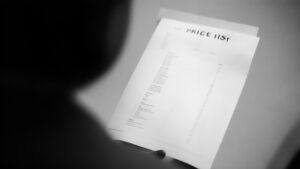-
Table of Contents
- Is Cheating on the LSAT Possible? A Deep Dive
- LSAT Security Measures: A Fortress Against Fraud
- Evolution of Security Protocols
- Specific Security Technologies
- Potential Methods of Cheating and Their Limitations
- Common Cheating Strategies
- Why These Methods Are Difficult to Execute
- Consequences of Getting Caught: A Steep Price to Pay
- LSAC Sanctions
- Impact on Law School Admissions
- Long-Term Career Implications
- Ethical Considerations: The Moral Compass
Okay, here’s a comprehensive, SEO-optimized article about cheating on the LSAT, formatted for a WordPress editor, and incorporating your specifications.
“`html
Is Cheating on the LSAT Possible? A Deep Dive

The Law School Admission Test (LSAT) is a crucial gateway to legal education, and a high score can significantly impact a candidate’s chances of admission to their desired law school. Given the high stakes, the question of whether it’s possible to cheat on the LSAT inevitably arises. This article explores the realities of LSAT security measures, the potential methods of cheating, the consequences of getting caught, and the ethical considerations involved. We’ll delve into historical context, examine real-world examples, and analyze the effectiveness of current preventative measures.
LSAT Security Measures: A Fortress Against Fraud
The Law School Admission Council (LSAC), the organization that administers the LSAT, invests heavily in security protocols to maintain the integrity of the exam. These measures have evolved significantly over time, particularly with the shift to digital testing and remote proctoring.
Evolution of Security Protocols
Historically, LSAT security relied primarily on in-person proctoring, identification verification, and strict rules regarding permitted materials. However, the transition to a digital, remotely proctored format necessitated a complete overhaul of these protocols. The COVID-19 pandemic accelerated this shift, forcing LSAC to adapt quickly to new challenges.
Key changes include:
- Remote Proctoring: Utilizing AI-powered software and human proctors to monitor test-takers via webcam and microphone.
- Environment Scans: Requiring test-takers to perform a 360-degree scan of their testing environment before the exam begins.
- Restricted Materials: Strict limitations on permitted items, including prohibiting electronic devices, notes, and unauthorized aids.
- Digital Security: Implementing measures to prevent unauthorized access to the test software and content.
- Data Analysis: Employing sophisticated algorithms to detect anomalous test-taking behavior.
Specific Security Technologies
LSAC employs a multi-layered approach to security, incorporating several key technologies:
- Facial Recognition: To verify the identity of the test-taker and ensure they match the registration information.
- Eye-Tracking Software: To monitor eye movements and detect suspicious behavior, such as looking away from the screen for extended periods or focusing on unauthorized materials.
- Audio Monitoring: To detect any unauthorized communication or the presence of other individuals in the testing environment.
- Screen Monitoring: To prevent test-takers from accessing unauthorized websites or applications during the exam.
- Keystroke Analysis: To identify unusual typing patterns that might indicate external assistance.
Potential Methods of Cheating and Their Limitations
Despite the robust security measures, individuals may still attempt to cheat on the LSAT. However, the effectiveness of these methods is questionable, and the risks are substantial.
Common Cheating Strategies
Historically, common cheating methods included:
- Using Unauthorized Materials: Smuggling notes or cheat sheets into the testing room. (Less relevant in remote testing).
- Getting External Assistance: Communicating with someone outside the testing room for answers.
- Impersonation: Having someone else take the test on their behalf.
- Memorizing and Sharing Questions: Attempting to memorize questions and share them with others.
In the digital age, new methods have emerged:
- Using Hidden Devices: Employing hidden cameras or microphones to transmit information.
- Accessing Unauthorized Websites: Attempting to access websites or applications containing answers or assistance.
- Brain Dumps: Obtaining leaked test questions (though LSAC actively combats this).
Why These Methods Are Difficult to Execute
The effectiveness of these methods is severely limited by several factors:
- Vigilant Proctoring: Remote proctors are trained to identify suspicious behavior and intervene immediately.
- Advanced Technology: AI-powered monitoring systems can detect subtle cues that might indicate cheating.
- Test Security: LSAC regularly updates test questions and formats to prevent the effectiveness of memorization or leaked materials.
- Post-Test Analysis: LSAC analyzes test results for anomalies and investigates suspicious scores.
The risk of detection is high, and the potential consequences are severe, making cheating a highly risky endeavor.
Consequences of Getting Caught: A Steep Price to Pay
The consequences of being caught cheating on the LSAT are significant and can have long-lasting repercussions on a candidate’s legal career.
LSAC Sanctions
LSAC has the authority to impose a range of sanctions, including:
- Score Cancellation: Invalidating the test score, rendering it unusable for law school applications.
- Test Ban: Prohibiting the individual from taking the LSAT in the future.
- Notification to Law Schools: Informing all law schools to which the candidate has applied or been admitted about the cheating incident.
Impact on Law School Admissions
Being flagged for cheating can severely damage a candidate’s chances of admission to law school. Law schools value integrity and ethical conduct, and a cheating incident raises serious concerns about a candidate’s character.
Long-Term Career Implications
The consequences can extend beyond law school admissions. A cheating incident can be reported to state bar associations, potentially affecting a lawyer’s ability to practice law. The legal profession places a high premium on honesty and ethical behavior, and a history of cheating can be a significant impediment to a successful legal career.
Ethical Considerations: The Moral Compass
Beyond the practical consequences, cheating on the LSAT raises fundamental ethical questions. The legal profession demands integrity






